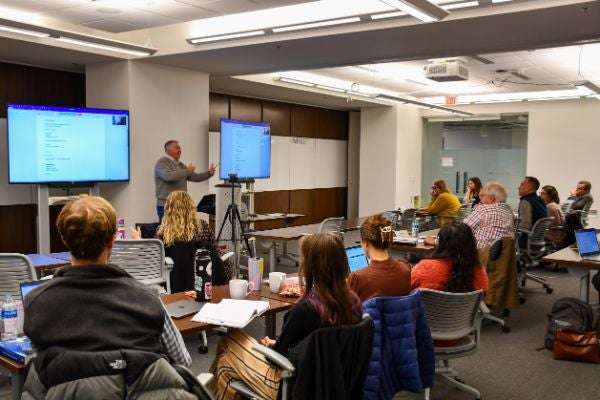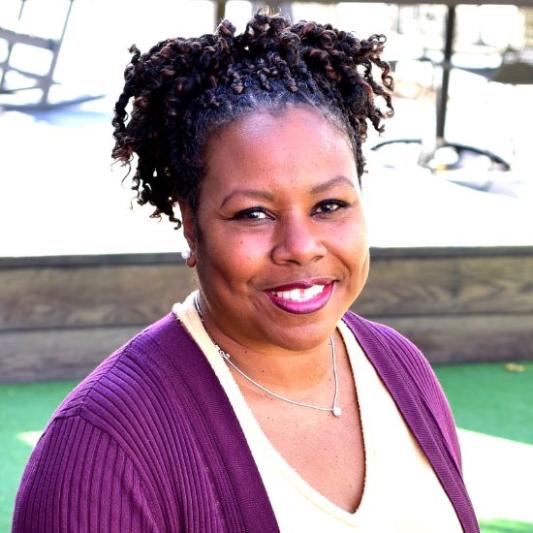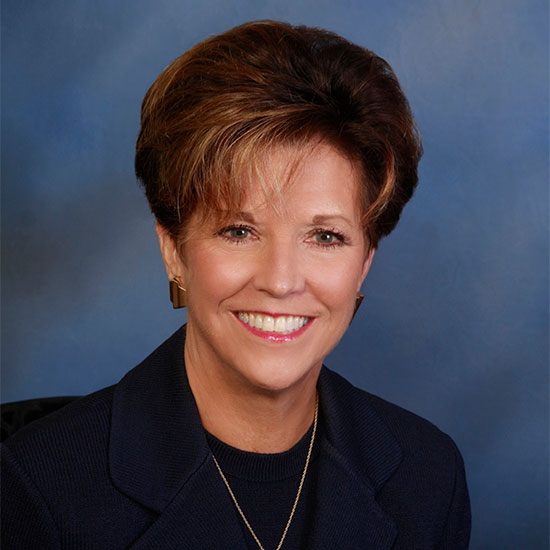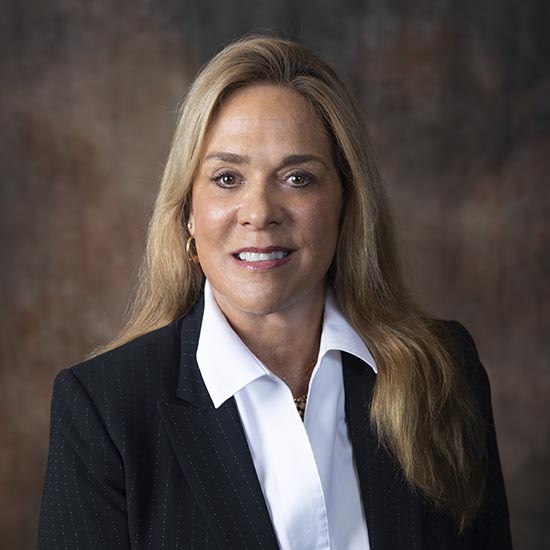Program Overview
Conflict is an inevitable part of life, but it doesn’t have to be a barrier to success when handled effectively, efficiently and respectfully. Lipscomb University’s Conflict Management program empowers you to explore the building blocks of dispute resolution, examine problems in negotiation and mediation, and develop processes for solving complex issues in the face of conflict. These skills are employed to cope with or mitigate conflict by peaceful means and to establish justice for all people. Ultimately, conflict management is the means by which we pursue a better world.
The Master of Arts in Conflict Management and the Conflict Management Graduate Certificate program are available in a hybrid format at our Nashville campus location.
Conflict Management Learning Outcomes
The master’s in Conflict Management degree program is designed for students who want to become experts in conflict management and resolution. Meanwhile, the Conflict Management certification is designed for students seeking an introduction to conflict management skills. Both programs are meant to strengthen students’ qualifications and confidence in navigating the conflict management and resolution processes in different contexts.
You’ll be equipped with the tools to recognize, understand and alleviate conflicts across intrapersonal, interpersonal, organizational and governmental settings. Wherever conflict arises, you will be fully prepared to meet the needs of your workplace, community and family.
"Students are pushed to apply what they learn inside the classroom in their daily lives. Practicing real-life scenarios in the classroom allow students to use their newly acquired skills. Lipscomb’s positive reputation coupled with its Conflict Management program made the decision to apply a no-brainer! My degree in Conflict Management has opened so many doors for me and my professional life. Ultimately I hope to use the skills learned at Lipscomb in the field of mediation."
-Danielle Olafson '22
Why Study Conflict Management at Lipscomb University?
Every aspect of our Conflict Management program and curriculum reinforces our goal of providing you with the tools to diagnose, manage and heal conflicts in all settings. At Lipscomb University, we are committed to incorporating real-world conflict management training and experiences into the classroom by having you study under globally recognized conflict management practitioners. To help you succeed in the program, we also provide frequent advising to ensure a personal relationship and focused mentorship opportunity for all graduate degree candidates.
Admissions Requirements
Individuals are welcome to apply to the conflict management program from all academic disciplines and professions. Students with undergraduate degrees from an accredited university will have met all prerequisites.
Applicants to either the graduate certificate or M.A. program in Conflict Management must submit the following for enrollment:
- Graduate Application Form: The Institute for Conflict Management offers graduate programs with two entry points per academic year—August (fall semester) and January (spring semester). Although we offer rolling admission, all candidates are encouraged to complete the online graduate application at least four-to-six weeks before courses begin.
- Application Fee: A non-refundable $50 application fee must be submitted before the application is evaluated by the admissions committee.
- Résumé: Include a résumé detailing academic, personal and professional experiences and achievements.
- Official Transcripts: Official transcripts from all previously attended colleges and universities are required. Transcripts must be sent from the university of attendance in order to be considered official and can be either hard copy or electronic.
Lipscomb University
Graduate Admissions
One University Park Drive
Nashville, TN 37204gradadmissions [at] lipscomb.eduaria-describedby="sk-tooltip-9129" data-sk="tooltip_parent" data-stringify-link="mailto:gradadmissions [at] lipscomb.edu" delay="150" rel="noopener noreferrer" target="_blank"
- References: Each applicant is required to submit two references.
- Personal Statement/Essay: A written response of less than 1,000 words responding to the following questions may be submitted within the online application: (1) What draws you to study conflict management? (2) What are your personal and professional goals and interests? and (3) What are your expectations of this program?
- Standardized examination score OR writing sample:
Accepted standardized test scores include those of the Graduate Record Examination (GRE), Graduate Management Aptitude Test (GMAT), Law School Admissions Test (LSAT), Miller Analogies Test (MAT) or Medical College Admission Test (MCAT).
The writing sample should demonstrate clarity of thinking, reasoning ability, logic, and strong writing and communication skills. The sample should be an academic or professional document that has been previously written in an academic or professional setting. Previously published work may also be considered. The sample should not be something prepared for the sole purpose of admission to the program. - On-Campus Interview: After all application documents are received and academic requirements are met, an on-campus interview will be scheduled.
Courses
Lipscomb’s Conflict Management degree program offers two options—a 15-credit Graduate Certificate program and a 30-credit Master of Arts in Conflict Management.
Master of Arts in Conflict Management
The Master of Arts in Conflict Management program takes a holistic approach when introducing root causes, theories of conflicts and the process of dispute resolution. It also offers various elective courses that inspire you to examine conflict resolutions from different perspectives, such as psychology, culture and gender. In addition, you have the opportunity to obtain hands-on experience through an internship course.
Your final three credit hours are devoted to a research project, which allows you to dive deeply into a particular area of interest, gather research and produce writing suitable to diagnose and treat a specific conflict.
Conflict Management Certificate
Aiming to establish essential conflict management skills in a short time period, the Conflict Management certification program not only offers foundational courses in negotiation, mediation and conflict survey but also allows you to deepen your study with courses in your chosen concentration—Organizational Settings or Health Care Settings.
Tuition & Aid
Lipscomb University is committed to making our first-class education as affordable as possible. The Conflict Management program tuition is approximately $1,091* per credit hour.
With various financial aid programs available, your out-of-pocket cost of attendance can be much lower. Learn more about your financial aid options:
*Note: Graduate tuition rates may increase annually, effective at the start of the summer term.















